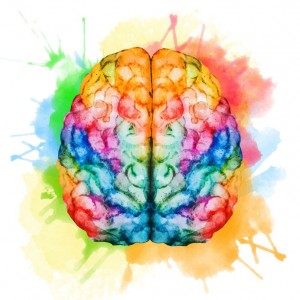EMDR
What is EMDR
EMDR stands for Eye Movement Desensitisation and Reprocessing. It is a therapy used to help people recover from distressing events and the problems they have caused, like flashbacks, upsetting thoughts or images, depression or anxiety.EMDR is endorsed by the National Institute for Health and Care Excellence (NICE), Health Care Executive (HSE) and the World Health Organisation (WHO) as a treatment for post-traumatic stress disorder (PTSD).
How does EMDR work
When a person is involved in a traumatic event, they may feel overwhelmed and their brain may be unable to fully process what is going on. The memory of the event seems to become "stuck" so that it remains very intense and vivid. The person can re-experience what they saw, heard and smelt and the full force of the distress they felt whenever the memory comes to mind.EMDR aims to help the brain "unstick" and reprocess the memory properly so that it is no longer so intense. It also helps to desensitise the person to the emotional impact of the memory, so that they can think about the event without experiencing such strong feelings. EMDR is best known for its effectiveness in treating post-traumatic stress disorder (PTSD). However it can also be used to help treat a variety of mental health problems like depression or anxiety, especially where a difficult life event has been involved. EMDR can be useful for people who have witnessed or experienced an event like a car accident, a violent crime, sexual or emotional abuse, bullying, a social humiliation or the sudden loss of a loved one, and are struggling to recover.
EMDR is a complex therapeutic process that should always be delivered by properly trained therapists. Michael Walsh trained under Dr Michael Paterson clinical Psychologist Michael Paterson in 2015.
EMDR evidence based
Some of the latest research on EMDR therapy:- De Roos et al. (2017) carried out a study with children aged 8-18 who had developed PTSD after a single traumatic event. They found that EMDR was just as effective as cognitive behavioural writing therapy in reducing PTSD symptoms, and that EMDR reduced the children’s symptoms more quickly. About 92% of children no longer had PTSD after around four sessions of EMDR. They were still free of PTSD one year later.
- Carletto et al. (2016) found that EMDR and relaxation both significantly improved anxiety symptoms, depressive symptoms and mood in patients with MS and PTSD.
- Chen at al. (2015) looked at 11 scientific studies to find out whether EMDR or cognitive behavioural therapy (CBT) was more effective in treating PTSD. They found that EMDR was more effective overall.
- Chen et al. (2014) looked at 26 scientific studies and concluded that EMDR therapy significantly reduces PTSD symptoms, including depression and anxiety. They found that it is especially effective at reducing patients’ distress.

